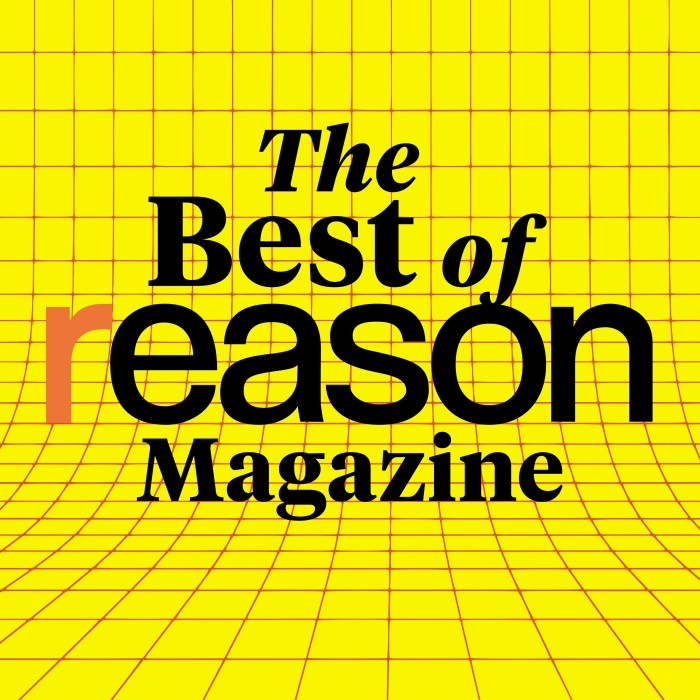The Best of Reason Magazine: Your Vote Doesn't Count
Why (almost) everyone should stay home on Election Day

A weekly selection from Reason—the magazine of free minds and free markets—read by AI.
Subscribe:
Why (almost) everyone should stay home on Election Day
The lethal consequences of a common, obscure hospital licensing law.
How legislators learned to stop worrying about the constitutionality of federal drug and gun laws by abusing the Commerce Clause.
Both parties—and the voters—are to blame for the national debt fiasco.
Georgia parents were accused of child abuse after they took their daughter to the doctor. Does the state's story add up?
Don't blame criminal justice reform or a lack of social spending for D.C.'s crime spike. Blame government mismanagement.
Ending U.S. aid would give Washington less leverage in the Middle East. That's why it's worth doing.
The obstacles to having more babies can't be moved by tax incentives or subsidized child care.
The number of job openings far exceeds the number of unemployed Americans. Seasonal businesses can't get the foreign labor they need.
As allegations of intellectual property theft swirl, a deeper look reveals a tale of phony numbers and twisted data.
Revolutionary AI technologies can't solve the "wicked problems" facing policy makers.
Is AI-written poetry cheating if you laboriously trained the AI?
OnlyFans lets women distribute their own porn. Artificial intelligence will give them even more control.
Historical teaching and research are being revamped by AI.
AI developer Andrew Mayne explains why technology could create more jobs and lead to unprecedented economic growth.
Science can detect increasingly small particles of plastic in our air and water. That doesn't mean it's bad for you.
San Francisco's prohibitionists worried that opium dens were patronized by "young men and women of respectable parentage" as well as "the vicious and the depraved."
The modern presidency is a divider, not a uniter. It has become far too powerful to be anything else.
The U.S. is dispensing munitions to Ukraine and Israel faster than they can be replaced.
Some Democrats want to mimic Europe's policies on phone chargers and more.
Imported tea was required for decades to pass a literal taste test before it could be sold in the United States.
New immigration pathways are letting private citizens welcome refugees and other migrants—and getting the government out of the way.
There is nothing in the Constitution that prevents an inmate from winning the presidency.
Maybe the problem for teens isn't screens, but what they are replacing.
Misled by a bad law, graduate students are drowning in debt.
Biden's economic policies gave us three years of excessive, wasteful, and poorly targeted federal spending.
As the party grows more populist, ethnically diverse, and working class, will Republicans abandon their libertarian economic principles?
Hasan Minhaj’s stand-up tests the boundaries of fact and fiction.
CEOs are beginning to wonder what to do when environmental, social, and governance factors are at odds with performance.
Rosy fiscal expectations based on eternally low interest rates have proven dangerously wrong.
Anyone advocating neoliberal policies is now persona non grata in Washington, D.C.
The colorful, mostly libertarian history of Key West.
Ballots should be counted quickly and accurately.
Eradication of the apex predator is "likely impossible."
The growing anti-transparency atmosphere in the state might make the Florida Man extinct.
Why have so few species been taken off the endangered species list?
A new Friedman biography ably explores the economist's ideas but sidesteps the libertarian movement he was central to.
Some progressives want to remove bureaucratic obstacles to growth—in the service of Democrats and big government.
David Friedman's anarchism doesn't have the answer for everything. That's the point.
Free Agents author Kevin J. Mitchell makes a neuroscientific case against determinism.
Popular podcasts and shows portray crime as salacious and sexy, failing ordinary victims in the process.
The epidemiology of food and drink is a mess.
The worst of the antitrust alarmism keeps proving untrue, as tech companies believed by some to be monopolies instead lose market share.
An undercurrent of the book is that common people want whatever progressive intellectuals want them to want.
When keeping cultural archives safe means stepping outside the law.
For five decades, drugs have been winning the war on drugs.
